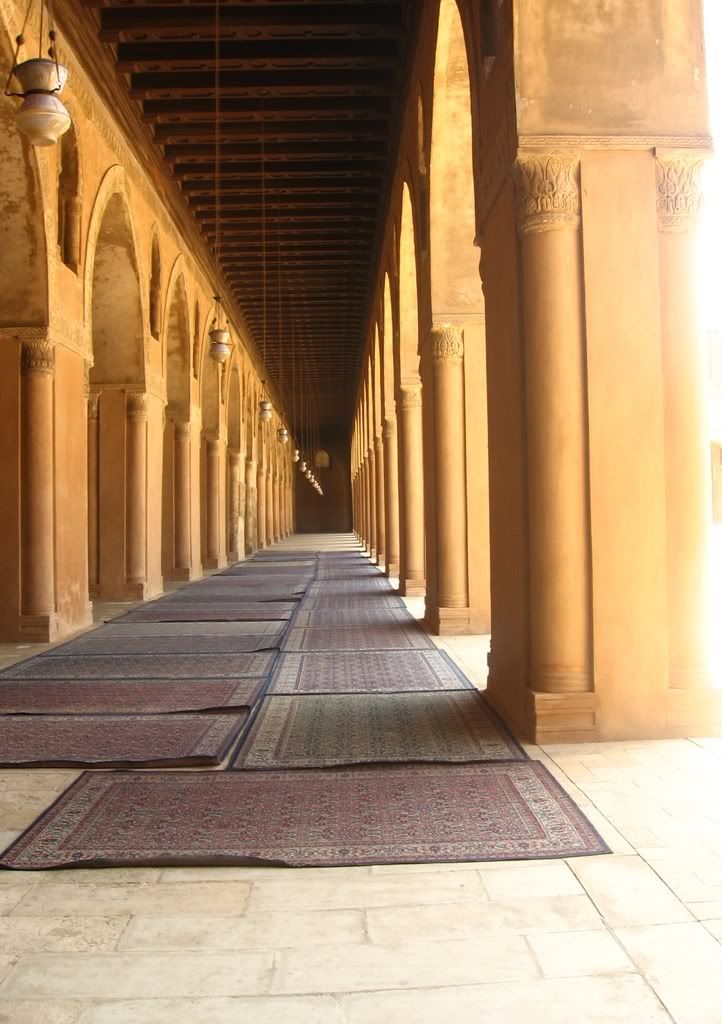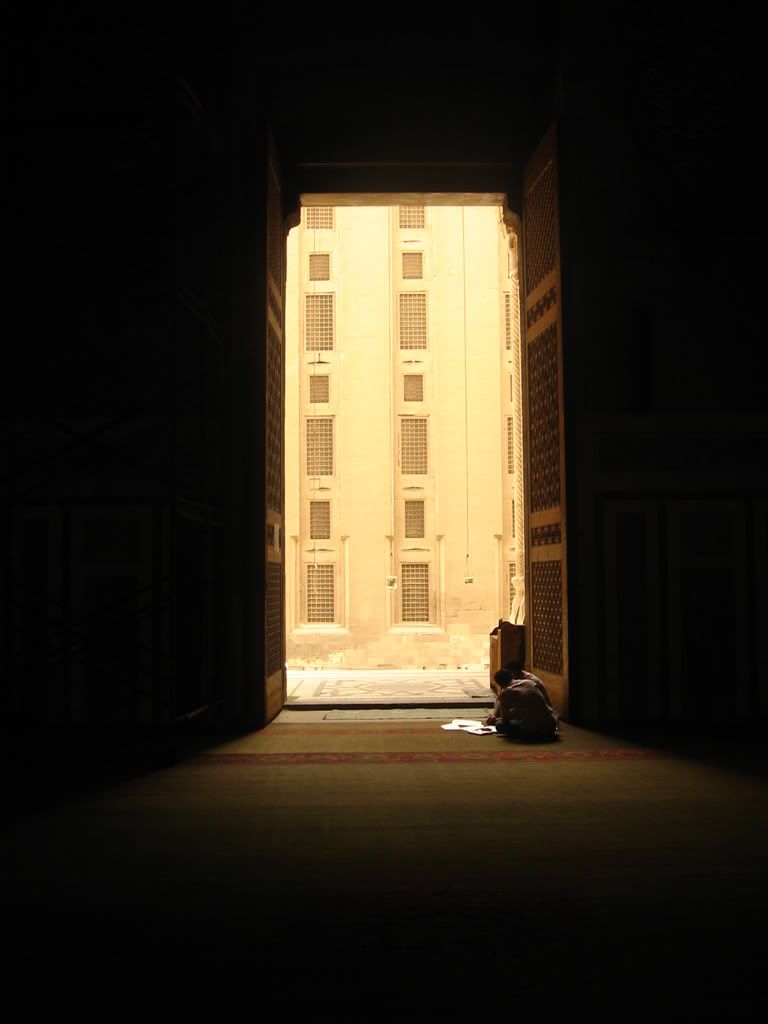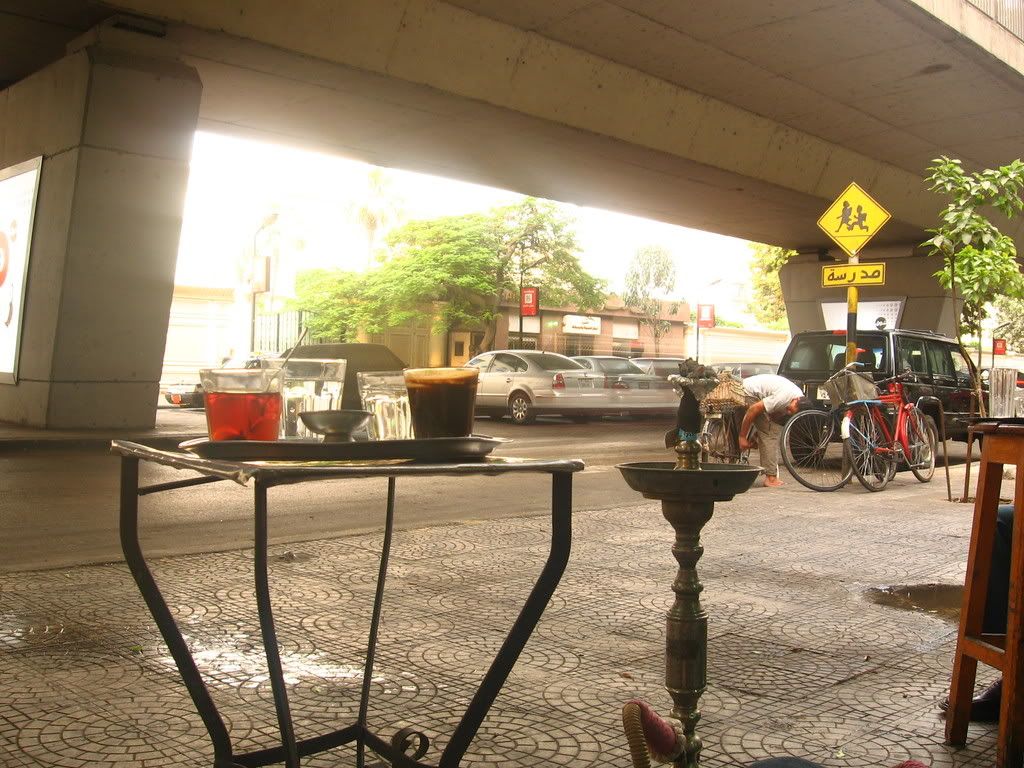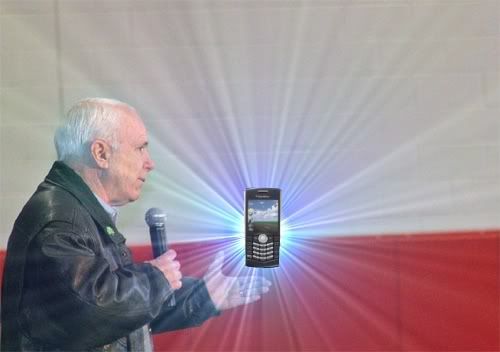Evan stared at the paper before him, trying to decipher the scrawling of the last hour. He took another sip of bitter tea and forced himself to focus on the mess of names and dates that formed the bare skeleton of the story. Coherence hovered at the edges of thought, slipping away whenever he tried to fix upon it. The pieces of the affair lay before him, but he couldn't assemble them. There seemed to be no connection between the various parts – who was the Iranian, Said, for instance? What interest could he have in the scandals of an Egyptian general?
It occurred to him that Carlos might be able to help him after all. He just had to approach it from the right angle. He quickly called and watched the taxis maneuver before him as the phone rang.
“Miss me so soon?” drawled Carlos sardonically.
“Yeah, yeah. Funny. Look, you have Fuad's number?”
“Fuad, like Fuad al-Afghani?”
“Yeah, that one.”
“Well, I got his number, but...no offense on this, but I don't think he'd like it if I gave his number to a journalist. That's just the way he is.”
“Well, maybe you could just set something up for me. Tell him I want to buy something.”
Evan could practically hear the gears turning in Carlos' head as he worked the angles. “OK, sure, where are you now?”
“I'm in an ahwa on 26th July, the one next to the butcher.”
“I guess that works. I'll give him a call and ask if he can meet you there.”
“Thanks, Carlos. I owe you one.”
“You owe me more than one, Rochester.”
Evan settled back in his seat and asked for more tea from the young boy who sat on his heels, watching a soccer game on a flickering color television. He realized that he had no idea who or what to keep an eye out for – indeed, he knew little more about Fuad other than his reputation as an underworld dealmaker and smuggler, his friendship with Carlos and his Pashtun roots. But if Evan knew about him, than so did other, more important people – and the Aghan's continued presence and survival in Egypt meant he had the right connections, connections Evan could use.
He thought it unlikely that Fuad would agree to go on the record about anything, even anonymously, but he might lead Evan to the loose string that would unravel the whole mess.
A grey sedan rolled to a halt in front of the ahwa and let out a tall, rail-thin man in a tight-fitting black suit, a kaffiyeh wrapped around his neck. Aviator sunglasses shielded his eyes, gold rims flashing in the sun. He walked to Evan's table and peered down at him, long fingers rubbing against each other.
“Carlos tells me you want to talk.”
Evan looked up at his interlocutor. Fuad had a rich, sleek look about him, the kind that comes with plenty of money. “I was hoping we might be able to do business.”
“This way, then,” Fuad said, gesturing at his car.
Evan entered the car behind the Afghan, who gestured at his driver to pull away from the curb. Leather and wood panelled the inside of the Mercedes, old but well-preserved. Fuad took a cigarette from the inside of his coat and lit it, then leaned back. He removed his glasses to reveal disconcertingly bright green eyes that seemed to search Evan for clues.
“I hear you are a journalist.”
“Where'd you hear that?”
Fuad waved his hand dismissively through the curling smoke. “I'm not going to give you an interview, if you think this.”
Evan grinned. “I didn't really expect it.”
“What do you want, then?”
“Hashish, maybe?”
Now Fuad smiled like a shark with gold teeth. “This I like to hear. How much?”
“200 pounds?”
Fuad rapped on the back of his driver's seat and received a neatly wrapped package from him. He snapped open a blade, made a few quick incisions, and produced a thin brick of hash which he wrapped again in foil.
“Where do you get it?” asked Evan, feigning nonchalance. “I mean, which country?”
“Afghanistan, of course. Everything that is the best comes from Afghanistan. You want hash, opium, heroin, jihadis – my country is king.” Fuad said this last with a kind of twinkling, ironic pride.
“Of course,” said Evan, “But I thought the war would make this difficult.”
“Business is maybe a little harder,” conceded Fuad. “But everything is an opportunity. This I learned a long time ago. So for me, I make this war an opportunity. The United States invade, make it more expensive for everyone else, but for me – cheaper. With a little help, so I can bring you the best prices.”
In that moment, it became clear to Evan. The loose string unravelled into a whole messy tapestry, and he had to grind his teeth to avoid gasping in front of Fuad.




